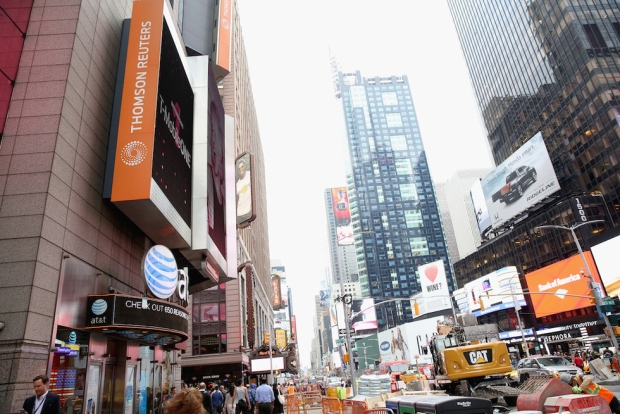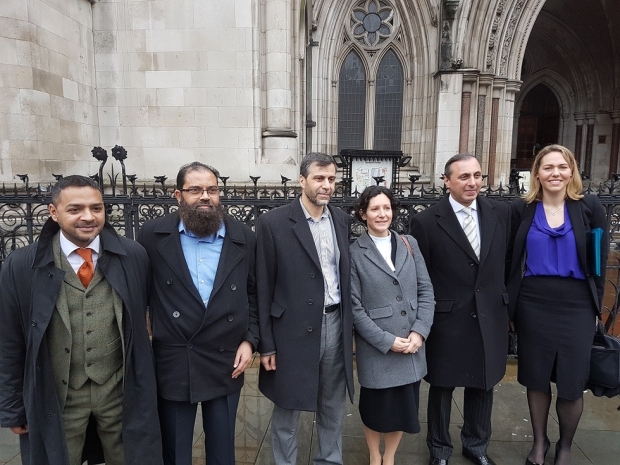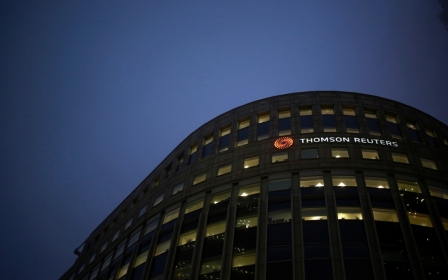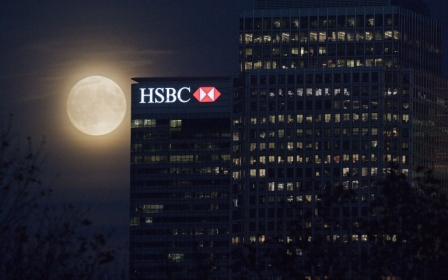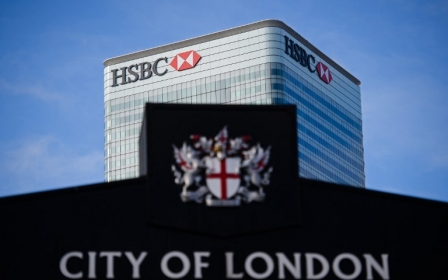Thomson Reuters World-Check was wrong to designate the Palestinian Return Centre as 'terrorist'
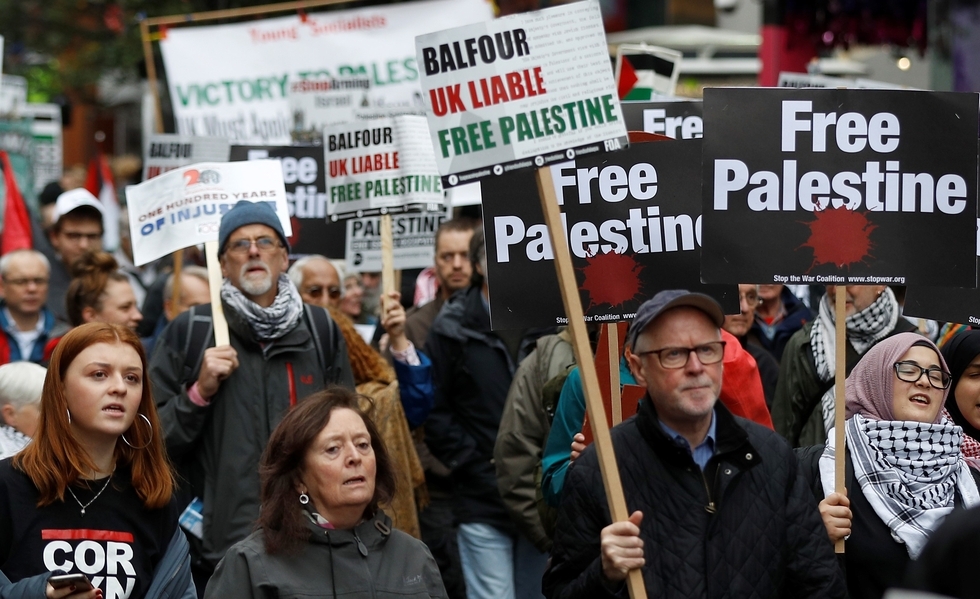
The Palestinian Return Centre (PRC) is a high-profile Palestinian organisation not just in Britain but in Europe. It advocates the rights of Palestinians expelled by Israel in 1948.
On Friday, it went on the attack.
Its director, Majed al-Zeer, issued legal proceedings against Thomson Reuters, the owner of financial intelligence service World-Check.
Devastating effects
The PRC says that it has made this remarkable move because World-Check has listed it, and Al-Zeer personally, in its "Category: Terrorism" on the private database of potential banking clients which it makes available to thousands of financial institutions worldwide.
The PRC says that this designation has had devastating effects, both on its own standing and the reputation of Al-Zeer. As a consequence, PRC says, its bank accounts were closed and its main donor ceased to fund it. The centre claims its very existence was thrown into question.
And all this despite the fact that there is no evidence of any kind that the PRC has any involvement in terrorism. Indeed quite the contrary.
The PRC is recognised with special consultative status at the United Nations. This means, according to the Palestinian organisation, it has 21 security passes at the UN. It regularly briefs British MPs. PRC says that nobody in Britain has ever accused it of having links to terror.
The case of the Palestinian Return centre is not simply a matter of an organisation seeking to clear its name. It is also about the way in which governments can blacken the names of their opponents with accusations of terrorism
For years, the PRC didn't even know about its terrorist designation on World-Check. Several times banks mysteriously closed its accounts. On one occasion the PRC moved to Metro Bank after HSBC wrote to it saying, with no proper explanation, that its account was to be closed. But Metro Bank then closed its new account.
In February last year the PRC took note of the case of Finsbury Park mosque in North London, which also had its bank account closed. The mosque discovered that it was labelled as linked to terror on World-Check.
Lawyers investigated and found World-Check terror designations. The PRC and its lawyers agreed that there could only be one reason for this: it had been declared a terrorist organisation by the state of Israel.
Experts tell me that in their view Israel, the UAE and Egypt are the three countries most often behind terror labels on World-Check.
The Israeli connection
So the case of the Palestinian Return Centre is not simply a matter of an organisation seeking to clear its name. It is also about the way in which governments can blacken the names of their opponents with accusations of terrorism.
In the PRC's case, this happened in December 2010 when the Israeli defence ministry declared it an "illegal" organisation.
Describing it as a "Hamas affiliate", the ministry said that it was "involved in initiating and organising radical and violent activity against Israel in Europe, while de-legitimising Israel's status as a nation among the European community".
Israel said that Hamas members held senior positions in the organisation. It also claimed that the PRC used anti-Israel propaganda to promote Hamas' goals and that the centre maintained close ties with the Hamas leadership in Damascus.
If World-Check loses this case, it means that a British court will have found Israel’s designation to be politically motivated and unreliable
Much of the Israeli designation rested on the fact that the PRC had hosted Hamas leader Ismail Haniya at a conference via video call in 2009. The PRC denies having links or ever having had links to Hamas. As for the Haniya speech, they point out that he was at the time prime minister of the Palestinian Authority and therefore the official voice of Palestine.
Among those who had met Haniya during that year was former US president Jimmy Carter.
Furthermore, the Meir Amit Intelligence and Terrorism Center, whose report is used to justify Israel's designation, is linked to the Israeli military and has an office in the defence ministry.
Its researchers even admitted that they relied on circumstantial evidence and that it was their assessment that the PRC had received funding from foundations linked to Hamas "even if it cannot be proved".
There is already a pattern of governments branding their political opponents terrorists, and World-Check failing to scrutinise this.
The Cordoba Foundation, another group described as terrorist by World-Check, is a think tank which says it promotes understanding between the West and the Muslim world. I traced the closure of its account by HSBC back to a terrorist designation by the UAE.
Politically motivated
In the case of the PRC, observers say the Israeli government may have gone after it as part of a campaign to delegitimise Palestinian organisations.
In 2015 academics at the University of Bath concluded that Israel's battle in that year to prevent the UN granting the PRC consultative status was the latest example in "Israel's wider effort to criminalise international civil society organisations actively promoting Palestinian rights and equality".
The University of Bath report has been commissioned by the PRC. But the centre has had no role in study design, collection, analysis and interpretation of data, or writing of the report. The PRC was responsible for providing funding, design and editorial layout.
If World-Check loses this case, it means that a British court will have found Israel’s designation to be politically motivated and unreliable. If World-Check wins, it means that governments like Israel, the UAE and Egypt can condemn their political opponents as terrorists with little scrutiny.
Bastion of free speech?
Thomson Reuters is one of the most famous names in journalism. One of Reuters' guiding principles from 1941 says that "the integrity, independence, and freedom from bias of Thomson Reuters shall at all times be fully preserved". The company also sees itself as a bastion of free speech.
"If you were to look at the World-Check profile, you just see 'terrorist', 'terrorist', 'terrorist'," says Mujib Gallagher, one of the solicitors representing the PRC. "They don't say it's a UN-recognised organisation. They don't have to put their own stamp on it."
World-Check has a history of wrongfully labelling Muslim groups as terror-linked. As well as the Finsbury Park mosque, last year, Thomson Reuters apologised to the Palestine Solidarity Campaign, a long-term campaigner for Palestinian rights, for incorrectly classifying it as linked to terror after its bank account was closed.
I should claim some credit for this. I uncovered World-Check while investigating these account closures for BBC Radio 4. When I managed to obtain access to the database – through a client who was sceptical of its methods – I was shocked at how sloppy it was.
As well as these contested terrorist labels, there were factual inaccuracies, such as dates of birth.
When approached by MEE, Thomson Reuters declined to comment on the case itself but issued a statement in which it said: "Our World-Check product and services aggregate data from reliable and reputable public domain sources – official sanctions lists, law and regulatory enforcement lists, government sources and trustworthy media publications – to help organisations fulfill their due diligence obligations and identify potential financial and related crime."
I am not saying that we don't need services like World-Check. The ubiquity of money laundering and the power of organised crime mean that banks must avoid facilitating terror. And there are signs that it is changing its ways.
Anecdotally, lawyers tell me that World-Check has been removing names from its list of terrorists over the past year. According to the Palestinian Return Centre it has not gone far enough.
- Peter Oborne won best commentary/blogging in 2017 and was named freelancer of the year in 2016 at the Online Media Awards for articles he wrote for Middle East Eye. He also was British Press Awards Columnist of the Year 2013. He resigned as chief political columnist of the Daily Telegraph in 2015. His books include The Triumph of the Political Class, The Rise of Political Lying, and Why the West is Wrong about Nuclear Iran.
Additional reporting by Richard Assheton
The views expressed in this article belong to the author and do not necessarily reflect the editorial policy of Middle East Eye.
Photo: Demonstrators marching for Palestine solidarity head towards Parliament Square, in central London, Britain 4 November 2017 (Reuters)
New MEE newsletter: Jerusalem Dispatch
Sign up to get the latest insights and analysis on Israel-Palestine, alongside Turkey Unpacked and other MEE newsletters
Middle East Eye delivers independent and unrivalled coverage and analysis of the Middle East, North Africa and beyond. To learn more about republishing this content and the associated fees, please fill out this form. More about MEE can be found here.



